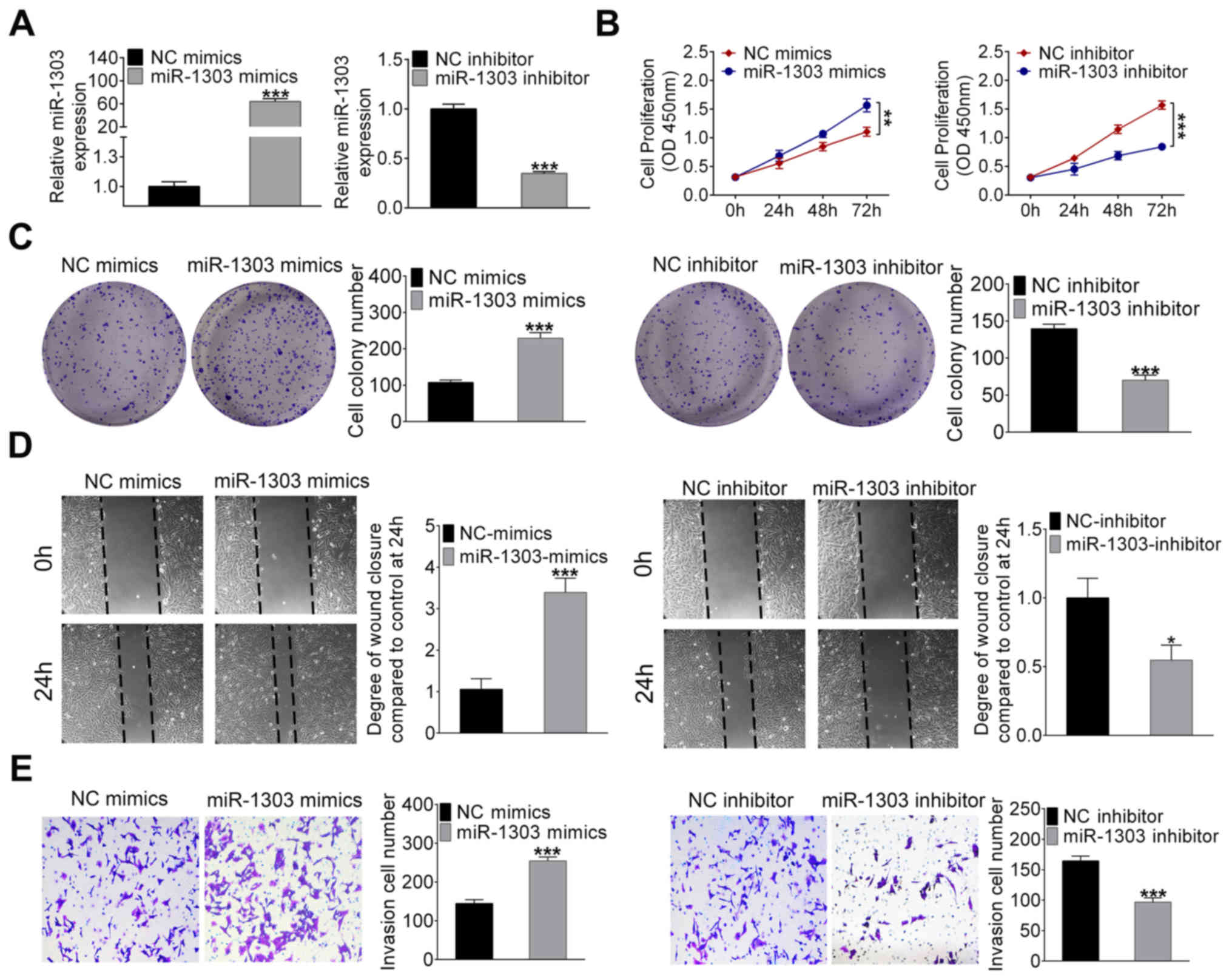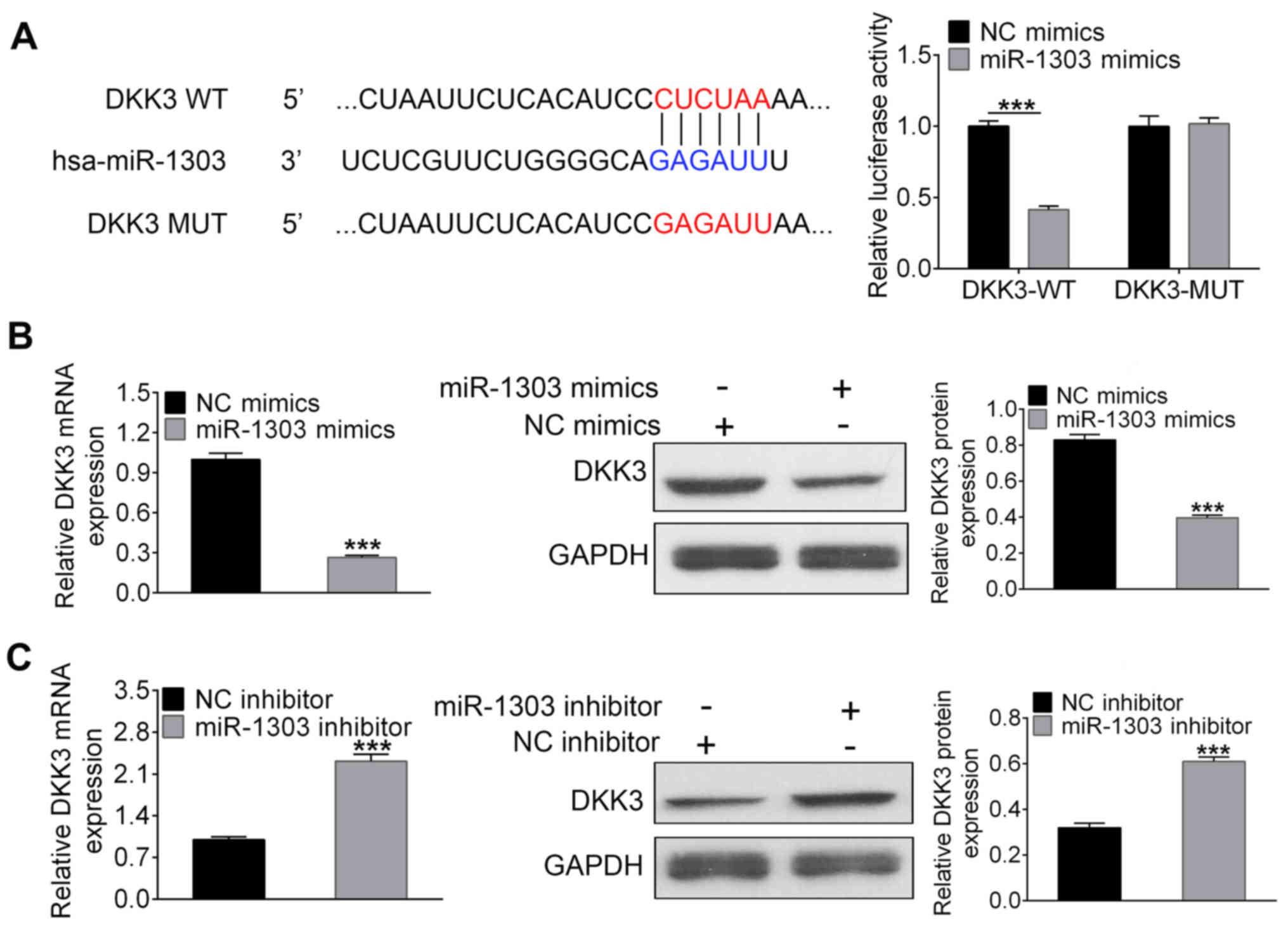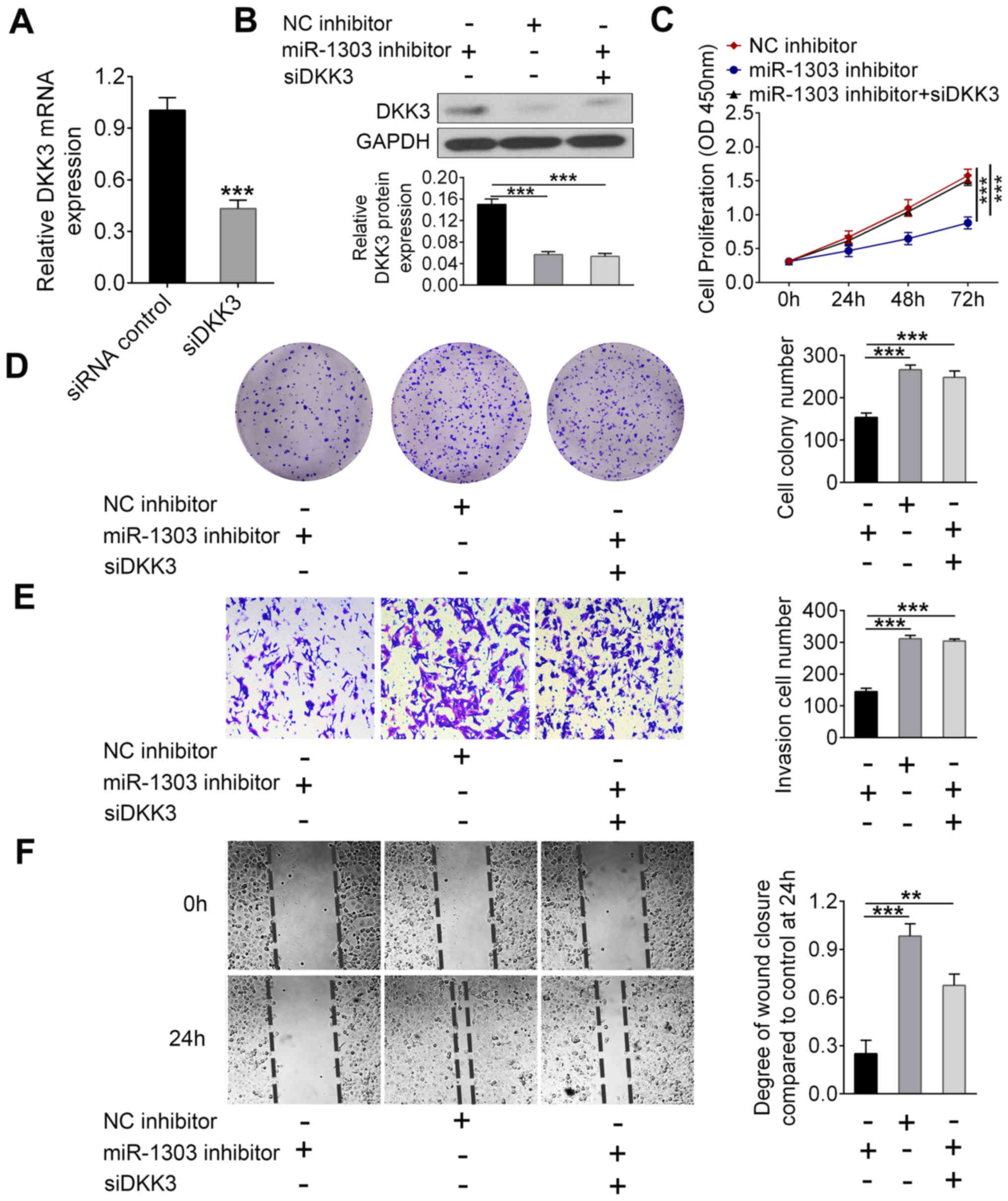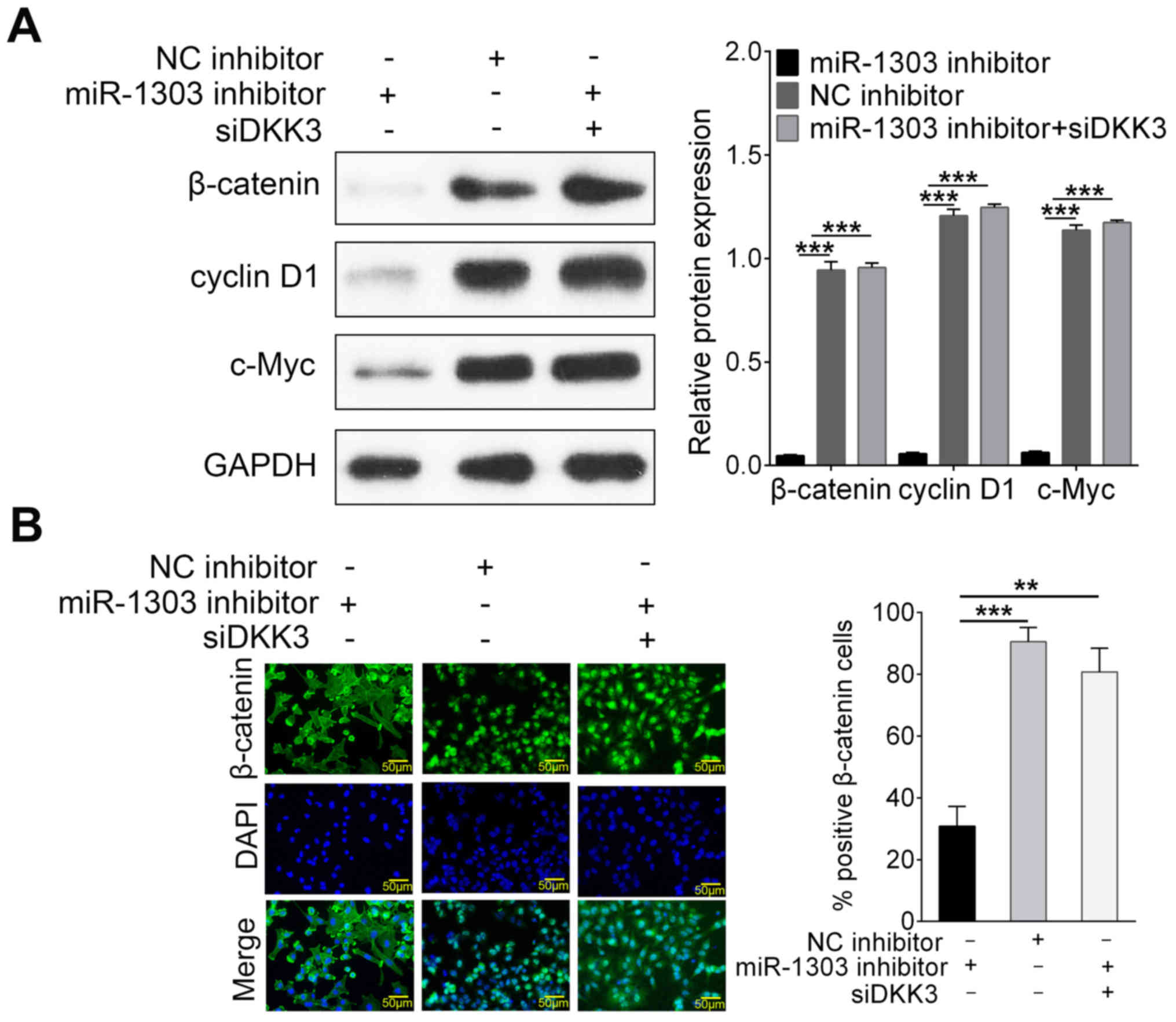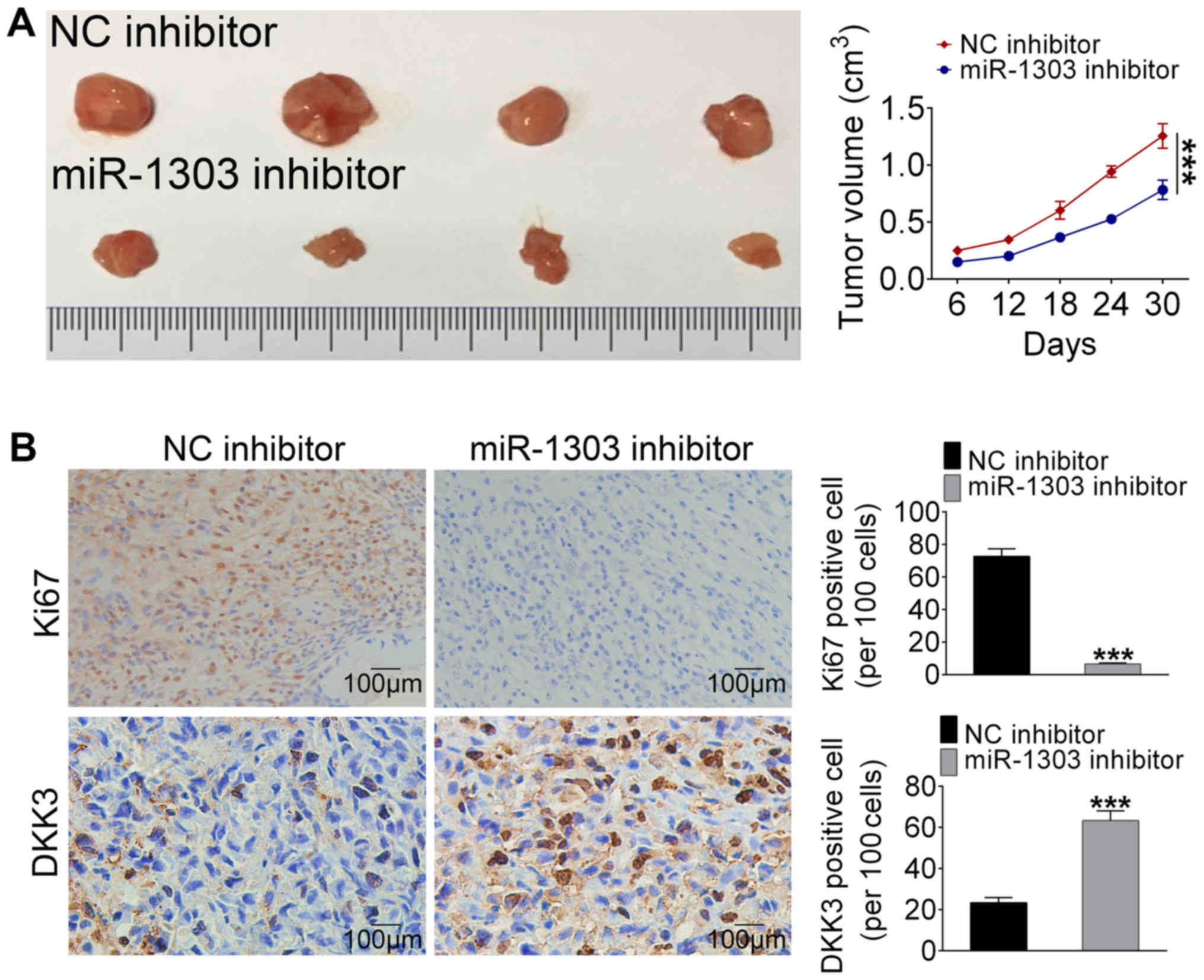|
1
|
Ferlay J, Soerjomataram I, Dikshit R, Eser
S, Mathers C, Rebelo M, Parkin DM, Forman D and Bray F: Cancer
incidence and mortality worldwide: Sources, methods and major
patterns in GLOBOCAN 2012. Int J Cancer. 136:E359–E386. 2015.
View Article : Google Scholar : PubMed/NCBI
|
|
2
|
Hoter A, Rizk S and Naim HY: The multiple
roles and therapeutic potential of molecular chaperones in prostate
cancer. Cancers (Basel). 11(pii): E11942019. View Article : Google Scholar : PubMed/NCBI
|
|
3
|
Salinas CA, Tsodikov A, Ishak-Howard M and
Cooney KA: Prostate cancer in young men: An important clinical
entity. Nat Rev Urol. 11:317–323. 2014. View Article : Google Scholar : PubMed/NCBI
|
|
4
|
Zhan F, Shen J, Wang R, Wang L, Dai Y,
Zhang Y and Huang X: Role of exosomal small RNA in prostate cancer
metastasis. Cancer Manag Res. 10:4029–4038. 2018. View Article : Google Scholar : PubMed/NCBI
|
|
5
|
Altwaijry N, Somani S and Dufes C:
Targeted nonviral gene therapy in prostate cancer. Int J
Nanomedicine. 13:5753–5767. 2018. View Article : Google Scholar : PubMed/NCBI
|
|
6
|
Di Nunno V, Gatto L, Santoni M, Cimadamore
A, Lopez-Beltran A, Cheng L, Scarpelli M, Montironi R and Massari
F: Recent advances in liquid biopsy in patients with castration
resistant prostate cancer. Front Oncol. 8:3972018. View Article : Google Scholar : PubMed/NCBI
|
|
7
|
Shore ND, Karsh L, Gomella LG, Keane TE,
Concepcion RS and Crawford ED: Avoiding obsolescence in advanced
prostate cancer management: A guide for urologists. BJU Int.
115:188–197. 2015. View Article : Google Scholar : PubMed/NCBI
|
|
8
|
Akram ON, Mushtaq G and Kamal MA: An
overview of current screening and management approaches for
prostate cancer. Curr Drug Metab. 16:713–718. 2015. View Article : Google Scholar : PubMed/NCBI
|
|
9
|
Parikh RR, Byun J, Goyal S and Kim IY:
Local therapy improves overall survival in patients with newly
diagnosed metastatic prostate cancer. Prostate. 77:559–572. 2017.
View Article : Google Scholar : PubMed/NCBI
|
|
10
|
Bryzgunova OE, Konoshenko MY and Laktionov
PP: MicroRNA-guided gene expression in prostate cancer: Literature
and database overview. J Gene Med. 20:e30162018. View Article : Google Scholar : PubMed/NCBI
|
|
11
|
Gurtan AM and Sharp PA: The role of miRNAs
in regulating gene expression networks. J Mol Biol. 425:3582–3600.
2013. View Article : Google Scholar : PubMed/NCBI
|
|
12
|
Sharma N and Baruah MM: The microRNA
signatures: Aberrantly expressed miRNAs in prostate cancer. Clin
Transl Oncol. 21:126–144. 2019. View Article : Google Scholar : PubMed/NCBI
|
|
13
|
Zhu Y, Gu L, Li Y, Lin X, Shen H, Cui K,
Chen L, Zhou F, Zhao Q, Zhang, et al: miR-148a inhibits colitis and
colitis-associated tumorigenesis in mice. Cell Death Differ.
24:2199–2209. 2017. View Article : Google Scholar : PubMed/NCBI
|
|
14
|
Wei H, Cui R, Bahr J, Zanesi N, Luo Z,
Meng W, Liang G and Croce CM: miR-130a deregulates PTEN and
stimulates tumor growth. Cancer Res. 77:6168–6178. 2017. View Article : Google Scholar : PubMed/NCBI
|
|
15
|
Li Z, Xu Z, Xie Q, Gao W, Xie J and Zhou
L: miR-1303 promotes the proliferation of neuroblastoma cell
SH-SY5Y by targeting GSK3β and SFRP1. Biomed Pharmacother.
83:508–513. 2016. View Article : Google Scholar : PubMed/NCBI
|
|
16
|
Zhang SJ, Feng JF, Wang L, Guo W, Du YW,
Ming L and Zhao GQ: miR-1303 targets claudin-18 gene to modulate
proliferation and invasion of gastric cancer cells. Dig Dis Sci.
59:1754–1763. 2014. View Article : Google Scholar : PubMed/NCBI
|
|
17
|
El-Murr N, Abidi Z, Wanherdrick K, Svrcek
M, Gaub MP, Fléjou JF, Hamelin R, Duval A and Lesuffleur T: MiRNA
genes constitute new targets for microsatellite instability in
colorectal cancer. PLoS One. 7:e318622012. View Article : Google Scholar : PubMed/NCBI
|
|
18
|
Gao L, Chen B, Li J, Yang F, Cen X, Liao Z
and Long X: Wnt/β-catenin signaling pathway inhibits the
proliferation and apoptosis of U87 glioma cells via different
mechanisms. PLoS One. 12:e01813462017. View Article : Google Scholar : PubMed/NCBI
|
|
19
|
Schneider JA and Logan SK: Revisiting the
role of Wnt/β-catenin signaling in prostate cancer. Mol Cell
Endocrinol. 462:(Pt A). 3–8. 2018. View Article : Google Scholar : PubMed/NCBI
|
|
20
|
Kypta RM and Waxman J: Wnt/β-catenin
signalling in prostate cancer. Nat Rev Urol. 9:418–428. 2012.
View Article : Google Scholar : PubMed/NCBI
|
|
21
|
Li Q, Ye L, Guo W, Wang M, Huang S and
Peng X: PHF21B overexpression promotes cancer stem cell-like traits
in prostate cancer cells by activating the Wnt/β-catenin signaling
pathway. J Exp Clin Cancer Res. 36:852017. View Article : Google Scholar : PubMed/NCBI
|
|
22
|
Flores ML, Castilla C, Gasca J, Medina R,
Pérez-Valderrama B, Romero F, Japón MA and Sáez C: Loss of PKCδ
induces prostate cancer resistance to paclitaxel through activation
of Wnt/β-Catenin pathway and Mcl-1 accumulation. Mol Cancer Ther.
15:1713–1725. 2016. View Article : Google Scholar : PubMed/NCBI
|
|
23
|
Agarwal V, Bell GW, Nam JW and Bartel DP:
Predicting effective microRNA target sites in mammalian mRNAs.
Elife. 4:2015. View Article : Google Scholar
|
|
24
|
Katase N, Nishimatsu SI, Yamauchi A,
Yamamura M and Fujita S: DKK3 overexpression increases the
malignant properties of head and neck squamous cell carcinoma
cells. Oncol Res. 26:45–58. 2018. View Article : Google Scholar : PubMed/NCBI
|
|
25
|
Livak KJ and Schmittgen TD: Analysis of
relative gene expression data using real-time quantitative PCR and
the 2(-Delta Delta C(T)) method. Methods. 25:402–408. 2001.
View Article : Google Scholar : PubMed/NCBI
|
|
26
|
Moskalev EA, Luckert K, Vorobjev IA,
Mastitsky SE, Gladkikh AA, Stephan A, Schrenk M, Kaplanov KD,
Kalashnikova OB, Pötz O, et al: Concurrent epigenetic silencing of
wnt/beta-catenin pathway inhibitor genes in B cell chronic
lymphocytic leukaemia. BMC Cancer. 12:2132012. View Article : Google Scholar : PubMed/NCBI
|
|
27
|
Forsdahl S, Kiselev Y, Hogseth R, Mjelle
JE and Mikkola I: Pax6 regulates the expression of Dkk3 in murine
and human cell lines, and altered responses to Wnt signaling are
shown in FlpIn-3T3 cells stably expressing either the Pax6 or the
Pax6(5a) isoform. PLoS One. 9:e1025592014. View Article : Google Scholar : PubMed/NCBI
|
|
28
|
Shien K, Tanaka N, Watanabe M, Soh J,
Sakaguchi M, Matsuo K, Yamamoto H, Furukawa M, Asano H, Tsukuda K,
et al: Anti-cancer effects of REIC/Dkk-3-encoding adenoviral vector
for the treatment of non-small cell lung cancer. PLoS One.
9:e879002014. View Article : Google Scholar : PubMed/NCBI
|
|
29
|
Guo Q and Qin W: DKK3 blocked
translocation of β-catenin/EMT induced by hypoxia and improved
gemcitabine therapeutic effect in pancreatic cancer Bxpc-3 cell. J
Cell Mol Med. 19:2832–2841. 2015. View Article : Google Scholar : PubMed/NCBI
|
|
30
|
Al Shareef Z, Kardooni H, Murillo-Garzon
V, Domenici G, Stylianakis E, Steel JH Rabano M, Gorroño-Etxebarria
I, Zabalza I, Vivanco MD, et al: Protective effect of stromal
Dickkopf-3 in prostate cancer: Opposing roles for TGFBI and ECM-1.
Oncogene. 37:5305–5324. 2018. View Article : Google Scholar : PubMed/NCBI
|
|
31
|
Veeck J, Bektas N, Hartmann A, Kristiansen
G, Heindrichs U, Knüchel R and Dahl E: Wnt signalling in human
breast cancer: Expression of the putative Wnt inhibitor Dickkopf-3
(DKK3) is frequently suppressed by promoter hypermethylation in
mammary tumours. Breast Cancer Res. 10:R822008. View Article : Google Scholar : PubMed/NCBI
|
|
32
|
Chiurillo MA: Role of the Wnt/beta-catenin
pathway in gastric cancer: An in-depth literature review. World J
Exp Med. 5:84–102. 2015. View Article : Google Scholar : PubMed/NCBI
|
|
33
|
Valenta T, Hausmann G and Basler K: The
many faces and functions of β-catenin. EMBO J. 31:2714–2736. 2012.
View Article : Google Scholar : PubMed/NCBI
|
|
34
|
Ashihara E, Takada T and Maekawa T:
Targeting the canonical Wnt/β-catenin pathway in hematological
malignancies. Cancer Sci. 106:665–671. 2015. View Article : Google Scholar : PubMed/NCBI
|
|
35
|
Arend RC, Londono-Joshi AI, Straughn JM Jr
and Buchsbaum DJ: The Wnt/β-catenin pathway in ovarian cancer: A
review. Gynecol Oncol. 131:772–779. 2013. View Article : Google Scholar : PubMed/NCBI
|
|
36
|
Wang Z, Ma LJ, Kang Y, Li X and Zhang XJ:
Dickkopf-3 (Dkk3) induces apoptosis in cisplatin-resistant lung
adenocarcinoma cells via the Wnt/β-catenin pathway. Oncol Rep.
33:1097–1106. 2015. View Article : Google Scholar : PubMed/NCBI
|
















